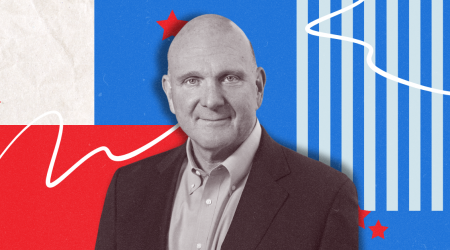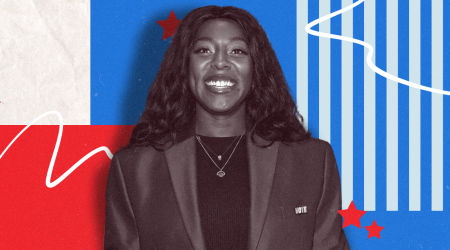
A few years ago, someone posted a photo of a man walking through Brooklyn with a copy of Conversations With Friends tucked in the back of his trousers, the name Sally Rooney peeking out above his waistband. It was an accessory that telegraphed as much about his personal style as his choice in attire did. Less than a month earlier, the book critic Constance Grady had published an essay titled “The Cult of Sally Rooney,” deeming it “aspirational” to be a fan: “If you read Sally Rooney, the thinking seems to go, you’re smart, but you’re also fun—and you’re also cool enough to be suspicious of both ‘smart’ and ‘fun’ as general concepts.”
[time-brightcove not-tgx=”true”]Thanks in part to endorsements from Taylor Swift, Sarah Jessica Parker, Lena Dunham, and Emily Ratajkowski, Rooney, the 33-year-old Irish novelist known for her exacting, witty portraits of the romantic and sexual entanglements of Dublin millennials, broke out in 2017 with her debut novel. Her name quickly became a shorthand for a cultural sensibility—the way young people in the late 2010s sublimated their deep uncertainty into a performance of anti-capitalism and avoidant attachment. Conversations With Friends probed the ambiguities of friendship and affairs, while Rooney’s second novel, Normal People, published in the U.S. in 2019, charted how social class and miscommunication derailed a romance.
With both books, Rooney had captured a mood. She has sold millions of copies of her novels, which also include 2021’s Beautiful World, Where Are You, in an age when most books sell fewer than 5,000 copies. Both Normal People and Conversations With Friends have been adapted into popular TV series. Ahead of her fourth novel, Intermezzo, out Sept. 24, 140 bookstores across the U.S. will host release parties—a treatment usually reserved for blockbuster series about wizards, fairies, and vampires.
Selling literary fiction is notoriously difficult—one publisher told Granta he estimates the category has only 20,000 “serious and consistent readers” in the U.S.—yet Rooney has managed to recruit fans who rarely read for pleasure. No one expected her level of success, especially Rooney herself. Conversations With Friends was a sleeper hit, picking up momentum in the year after it was published almost entirely because of word-of-mouth buzz. Many have wondered: For the literary world’s sake, could the Sally Rooney effect be reproduced?
A lot of fans believe Rooney’s books are in a category of their own. Mitzi Angel, the president of her U.S. publisher, Farrar, Straus, and Giroux, acquired Conversations With Friends while in a previous role at Faber & Faber in the U.K. When she first read the manuscript in 2016, Angel felt “a jolt of recognition,” as if the book “had already been written” or always existed. Inside the will-they-won’t-they romantic storyline between 21-year-old student Frances and 32-year-old married actor Nick were also moral quandaries. Rooney is skilled at “listening to and interpreting the culture,” Angel says. “Her work is always about the contracts between people. What is the contract between one person and another? That’s an ethical question, but it’s also a political question.”
As the former top-ranked college debater in Europe, Rooney was well-positioned to speak to young people who treat the personal and political with equal degrees of importance. In an era where name recognition for debut novelists matters more than ever, her academic bona fides, agent at a major firm, and book deal with an influential editor allowed her to start her career with a degree of seriousness not often afforded to young female novelists. She was hailed as “the Salinger of the Snapchat generation,” a phrase that has followed her for years (and which she is eager to shake).
Once Rooney trickled through the intelligentsia, her work reached the global creative class that can anoint—and consume en masse—the next “it” thing among movies, shows, and other works of culture. This group is not necessarily made up of avid readers, but they’ve read My Year of Rest and Relaxation by Ottessa Moshfegh, Detransition, Baby by Torrey Peters, Luster by Raven Leilani, and, most recently, All Fours by Miranda July. When these very-online cultural consumers discovered Rooney’s work, they were hooked. “She was one of the few people taken seriously for writing about relationships and sex and female anxiety, female body politics,” says literary agent Angeline Rodriguez. “And even then, she still was kind of dismissed by more establishment people and, frankly, men. Until she became so popular that people had to pay attention.”
Rooney herself has shied away from the spotlight, emphasizing how ordinary she is during almost every (rare) interview. In The Point, Becca Rothfeld wrote of Rooney’s modesty: “This person, or this persona, is at pains to convince us that she is someone any of us could become.” For many, today’s vision of success involves becoming famous; how little Rooney seems to court or embrace fame has conferred on her byline an intelligent, aloof glamour.
That cool-kid quality shows up in her characters, too. For young people exposed to neat Hollywood fantasies, filtered Instagram photos, and the choreographed scripts of pornography, the matter-of-factness with which Rooney writes about sex can make those situations feel radically mundane, similar to the effect of the messy sex depicted on Dunham’s GIRLS a decade ago. “People are clearly enjoying themselves,” Rodriguez says. Rooney writes about “sex being just something that happens between people, in a normal and positive way.”
Rooney has been a leading voice in a literary era where desire and body politics are taken seriously, and part of her audience has embraced other works on the subject matter, from Lisa Taddeo’s 2019 best seller Three Women to Annie Ernaux’s chronicles of her own sexual and private life through the decades. Those writers, along with Rooney, offer a sisterly counterpart to a larger boom in contemporary romance, with hits by authors like Emily Henry, Colleen Hoover, and Casey McQuiston dominating the best-seller lists and social media. Normal People is shelved under romance at Target—but it’s the only title in the aisle you’d also see tucked into the waistband of a dude walking through Brooklyn.
Read More: Romance Novels Are Literature by Casey McQuiston
Ever since Conversations With Friends became a word-of-mouth hit, publishers have been trying to harness “the Sally Rooney audience” for other authors. “There was so much excitement around finding people who were doing what she was doing, and it encouraged a more literary moment in many ways,” says an agent who requested anonymity for fear of retribution from her employer. Editors began acquiring “internal books written by dry, self-aware women” and marketing them as similar to Rooney’s. Other publishers tried, with some success, to kick-start the same buzz; Three Women was backed by an “anti-ghosting” campaign where women asked the publisher to send free copies to men who “needed” to read it. In designing the brand identity for 831 Stories, a new publisher of romance novels, co-founder Claire Mazur says, “We were certainly thinking of the Sally Rooney reader, and of the lit-fic reader who we hope to pull into the [romance] genre if they weren’t there already.”
In an essay for the New York Review of Books, the novelist Namwali Serpell identified at least nine books published from 2020 to 2023, including Exciting Times by Naoise Dolan and A Very Nice Girl by Imogen Crimp, that felt reminiscent of Rooney’s first two novels and featured similar plots and tensions. Some of those nine books were in progress long before Rooney made her mark, responding independently to the same cultural undercurrents. Nonetheless, they were relentlessly compared, which calcified the group as “a period style,” Serpell wrote. She called them “remaster novels”—stories about young women in relationships with imbalanced power dynamics who create a double bind that tips the scales in their favor. Though some of those books were successful, none of them touched Conversations’ level of cultural influence.
“What’s interesting to me is how the industry for a while was chasing the next Sally Rooney, and that’s mostly subsided,” says the agent who requested anonymity. “She turned out to be a robust brand but was not indicative of a new industry.” Authors like Hoover and Henry have solidified blocks of voracious readers with buying power in the romance space, Twilight sparked a wave of vampire novels, and The Fault in Our Stars launched “sick lit”—but Rooney’s sales haven’t translated to other contemporary literary books in any traceable way. Where did her audience look next?
Literary agent Monika Woods says those readers are looking toward Jane Austen or other classic women writers. “They’re reaching backwards because Sally Rooney writes such instantly classic prose. She’s not straining for the contemporary,” Woods says.
Regardless of where they might have turned their attention in the meantime, in the absence of a “next” Rooney-esque author, her fans are only that much more hungry for a next Rooney book. Intermezzo is hotly anticipated, both for readers and the industry members whose livelihoods are determined by book sales. “It is rare for a book to incite as much excitement amongst book-sellers as it does with the general public,” says Mikaela Dery, director of programming at the New York City bookstore chain McNally Jackson, whose Intermezzo launch party will include a chess workshop and a “conversations with new friends” cocktail hour.
Even if there can be only one Rooney, her success speaks to the necessity of publishers meaningfully investing in debut voices, as Angel did. In a way, Rooney and fellow zeitgeistian Moshfegh were “risky endeavors,” says Woods, “and they paid off big because readers really loved what they wrote and what they had to say.”
So, if it’s possible for another writer to harness the energy that has followed Rooney since the beginning, odds are it will be someone whose work looks nothing like Rooney’s at all. Says Rodriguez: “The person who is actually going to inherit that—who will be ‘the next Rooney’—has to capture their own moment.”






























